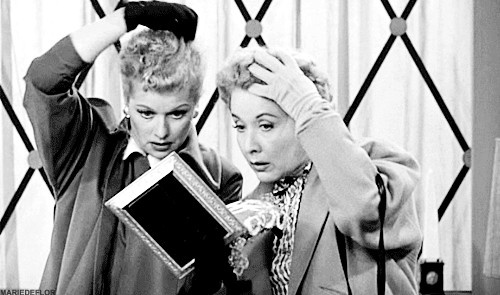
Nearly seven decades after it first aired, I Love Lucy remains one of the most beloved and influential sitcoms in television history. Created by and starring the incomparable Lucille Ball, the show captured the hearts of millions with its combination of slapstick humor, relatable situations, and unforgettable performances. Despite its initial run from 1951 to 1957, I Love Lucy has continued to shape comedy, inspire generations of performers, and remain a staple of American pop culture.
A Groundbreaking Show for Its Time
When I Love Lucy premiered on October 15, 1951, it was revolutionary. Lucille Ball and her real-life husband, Desi Arnaz, played Lucy Ricardo and her Cuban bandleader husband, Ricky, in a comedic portrayal of an unlikely couple navigating the ups and downs of married life. What made the show groundbreaking was its perfect blend of humor, heart, and realism, combined with innovative production techniques that transformed the sitcom genre.
The show’s success was not just due to its writing, but also to the way it was filmed. Unlike most shows of the time, I Love Lucy was shot in front of a live studio audience and on film rather than live television. This gave the show its iconic laughter track and allowed for multiple takes, which led to some of the most memorable and meticulously crafted comedy moments in television history. The show also broke barriers by being one of the first to feature an interracial couple on prime-time television, as Lucille Ball and Desi Arnaz’s real-life marriage reflected in the characters they portrayed.
Unforgettable Characters and Moments
At the heart of I Love Lucy were its two central characters—Lucy and Ricky Ricardo. Lucille Ball’s portrayal of the lovable, yet sometimes overzealous, Lucy made her a household name and cemented her status as one of the greatest comedic talents in history. Her impeccable timing, exaggerated facial expressions, and mastery of physical comedy made her a legend in the entertainment world.
Desi Arnaz, who played Ricky, was no less iconic. His charm, wit, and musical ability provided the perfect foil to Lucy’s antics. The dynamic between the two stars became the blueprint for the ideal comedic duo—one character grounded and level-headed, the other wildly unpredictable. Their interactions made the show an irresistible blend of chaos and warmth.
While Lucille Ball and Desi Arnaz made up the heart of the show, I Love Lucy also introduced several other memorable characters, including Ethel Mertz (played by Vivian Vance) and Fred Mertz (played by William Frawley), Lucy and Ricky’s best friends and landlords. Ethel’s sarcastic humor and Fred’s grumpy demeanor provided perfect comic relief, while their loyalty to Lucy and Ricky added to the heart of the show.
Some of the most iconic moments in TV history came from I Love Lucy, including the famous chocolate factory scene where Lucy and Ethel try to wrap chocolates on a conveyor belt, and the grape-stomping scene in Italy. These moments have become part of TV folklore and continue to bring laughter to audiences worldwide, even decades later.
Cultural Impact and Legacy
Although I Love Lucy ended in 1957, its impact has never faded. The series has been syndicated worldwide, and its reruns are a staple of TV networks and streaming services to this day. The timeless humor, lovable characters, and groundbreaking production values have inspired countless television shows that followed.
The show also paved the way for women in television, with Lucille Ball becoming one of the first female stars to have creative control over her show. In addition to her acting role, Lucille Ball co-founded Desilu Productions with her husband, Desi Arnaz, which became one of the most powerful production companies in Hollywood. Desilu produced iconic shows like Star Trek and The Untouchables, and Lucille’s influence on the industry remains significant.
The legacy of I Love Lucy continues to influence comedians and actors today. Modern TV stars often cite Lucille Ball’s comedic brilliance as a major inspiration, and her character has been studied for the way she combined physical humor with emotional depth. The show also remains a cultural touchstone, referenced in everything from commercials to movies, and even in academic studies about the evolution of television.
The Enduring Love for Lucy
Lucille Ball’s passing in 1989 marked the end of an era, but her impact is far from forgotten. I Love Lucy continues to thrive in popular culture, and new generations of viewers discover the magic of Lucy Ricardo every year. Lucille Ball’s legacy as a trailblazer, comedic genius, and pioneering woman in television remains strong.
For fans, I Love Lucy is more than just a TV show—it’s a source of joy, comfort, and nostalgia. Whether it’s the unforgettable moments, the groundbreaking humor, or the undeniable charm of Lucille Ball herself, I Love Lucy will always have a special place in the hearts of viewers, old and new.
